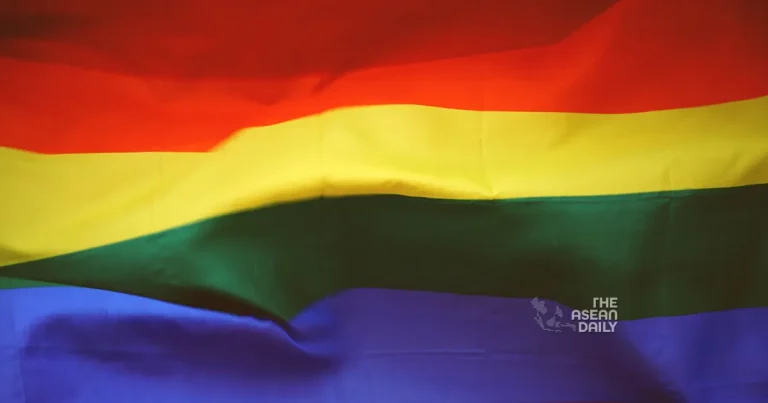1-4-2024 (BANGKOK) In a landmark decision that resonated across Southeast Asia, Thailand’s parliament voted overwhelmingly to legalize same-sex marriage, ushering in a new era of equal rights for the LGBTQ community. The historic bill, endorsed by a resounding 400 MPs with only 10 dissenting votes, was a resounding victory for inclusivity and a testament to the kingdom’s gradual evolution towards embracing diversity.
Yet, as the LGBTQ community celebrates this hard-won triumph, the journey toward a truly equitable society is far from over. Thailand’s path to equality now extends beyond gender and sexual orientation, encompassing a multitude of marginalized groups that have long languished on the fringes, deprived of the fundamental rights and dignities that most citizens take for granted.
The struggle for LGBTQ rights was not achieved overnight but was a culmination of decades of arduous efforts to shift societal attitudes and dismantle prejudices. Over time, as LGBTQ individuals assumed increasingly prominent roles across various sectors, the notion of their equality gradually permeated the collective consciousness. The parliamentary vote, with its overwhelming cross-party support, was a resounding affirmation of this evolving social consensus.
As jubilant celebrations ensue and over 100 laws are amended to reflect the new reality, Thailand must confront the harsh truth that other disenfranchised communities remain mired in inequality and neglect. The plight of migrant workers, ethnic minorities, the physically disabled, and the homeless underscores the nation’s unfinished business in forging a truly inclusive society.
The tragic collapse of a construction crane at the Xin Ke Yuan Steel factory in Rayong province, which claimed the lives of seven Burmese migrant workers, cast a harsh light on the precarious existence endured by this vulnerable workforce. Initial reports of paltry compensation offered by the employer – a mere 500,000 baht per deceased worker – ignited outrage among the grieving community, prompting protests and demands for a more equitable settlement of 5 million baht per life lost.
The standoff, ultimately resolved with a compromise of 1.6 million baht per victim, laid bare the exploitation and disregard that migrant labourers routinely face, despite their indispensable contribution to the Thai economy. As one worker lamented, the employer had previously refused compensation after a colleague’s electrocution death, eroding any semblance of trust.
Such incidents are likely symptomatic of a broader malaise, a systemic failure to acknowledge the humanity and dignity of those who toil in the shadows, propelling Thailand’s economic engine while relegated to the fringes of society. As the nation celebrates its LGBTQ milestone, extending the same spirit of inclusivity to migrant workers becomes an ethical imperative.
The plight of the physically disabled community also demands urgent attention. Burdened by a dearth of employment opportunities and a woefully inadequate infrastructure, these individuals struggle not only to lead normal lives but also to participate meaningfully in society. Their exclusion is a stark rebuke to the ideals of equality that Thailand ostensibly upholds.
Yet another forgotten segment is the homeless population in Bangkok, seemingly abandoned by both central and local authorities. Left to sleep rough on Ratchadamnoen Avenue and other urban enclaves, their existence is a poignant reminder of the yawning gaps in Thailand’s social safety net and the collective indifference to their suffering.
As the LGBTQ community’s decades-long battle for acceptance has demonstrated, the path to inclusivity is paved with perseverance, empathy, and a steadfast belief in the fundamental equality of all human beings. In the words of this writer, who has long advocated for LGBTQ rights, “You do not need to be a member of the LGBTQ community to support their equal rights and inclusion into Thai society – all you need is to recognize that they are human just like us.”
This maxim resonates now more than ever, as Thailand is called upon to extend its embrace beyond the LGBTQ community and envelop all those who have been marginalized, disenfranchised, and relegated to the peripheries of society. The nation’s journey towards true equality is far from complete, and its moral stature will be judged not only by the victories it celebrates but also by its commitment to uplifting those who have been left behind.
From the sweatshops that exploit migrant labour to the pavements that shelter the homeless, Thailand’s roadmap to inclusivity must traverse the landscapes of injustice and neglect. Only by acknowledging the shared humanity that binds us all can the kingdom truly embody the virtues of compassion and fairness that it so fervently proclaims.
As the echoes of the same-sex marriage vote reverberate across the region, Thailand has an opportunity to solidify its reputation as a beacon of progress and tolerance. Yet, this mantle of leadership will ring hollow unless the kingdom musters the courage and resolve to confront the myriad forms of inequity that still fester within its borders.
The road to equality is long and arduous, but the rewards of a truly just and inclusive society are immeasurable. Thailand’s LGBTQ community has blazed a trail, illuminating the path forward with their unwavering determination and unwillingness to accept anything less than full acceptance and equal treatment under the law.
Now, the torch must be carried forth, its flames fueled by a collective commitment to extend the same spirit of empathy and justice to all those who have been denied a seat at the table of opportunity. Only then can Thailand lay claim to being a nation that truly embraces the diversity of its people and upholds the unalienable rights that should be the birthright of every human soul.




